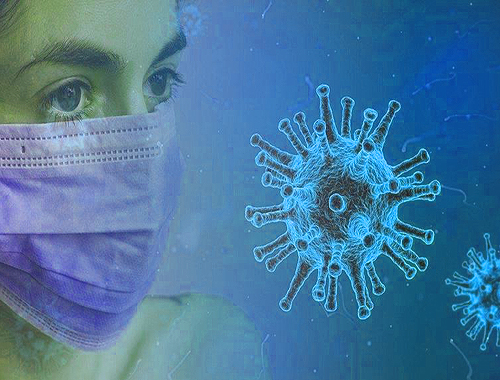COVID-19

Published: 18 Jun 2025
ICD9: U09.9 ICD10: Z86.16 ICD11: RA01
COVID-19 is the name of the disease caused by a novel (new) coronavirus called SARS-CoV-2.
Here's a breakdown:
![]() COVID-19 stands for COrona VIrus Disease of 2019.
COVID-19 stands for COrona VIrus Disease of 2019.
![]() SARS-CoV-2 stands for Severe Acute Respiratory Syndrome Coronavirus 2. This is the actual virus that causes the disease.
SARS-CoV-2 stands for Severe Acute Respiratory Syndrome Coronavirus 2. This is the actual virus that causes the disease.
Key characteristics of COVID-19:
![]() Infectious Disease: It spreads easily from person to person.
Infectious Disease: It spreads easily from person to person.
![]() Respiratory Illness: It primarily affects the respiratory system (lungs and airways).
Respiratory Illness: It primarily affects the respiratory system (lungs and airways).
![]() Wide Range of Symptoms: Symptoms can range from mild (like a common cold) to severe (like pneumonia or acute respiratory distress syndrome). Some people may have no symptoms at all (asymptomatic). Common symptoms include fever, cough, fatigue, loss of taste or smell, and shortness of breath.
Wide Range of Symptoms: Symptoms can range from mild (like a common cold) to severe (like pneumonia or acute respiratory distress syndrome). Some people may have no symptoms at all (asymptomatic). Common symptoms include fever, cough, fatigue, loss of taste or smell, and shortness of breath.
![]() Potential for Serious Complications: In some individuals, particularly older adults and those with underlying health conditions, COVID-19 can lead to serious complications and even death.
Potential for Serious Complications: In some individuals, particularly older adults and those with underlying health conditions, COVID-19 can lead to serious complications and even death.
![]() Pandemic: COVID-19 caused a global pandemic, significantly impacting healthcare systems, economies, and societies worldwide.
Pandemic: COVID-19 caused a global pandemic, significantly impacting healthcare systems, economies, and societies worldwide.
![]() Prevention: Measures to prevent the spread of COVID-19 include vaccination, wearing masks, practicing social distancing, washing hands frequently, and avoiding crowded indoor spaces.
Prevention: Measures to prevent the spread of COVID-19 include vaccination, wearing masks, practicing social distancing, washing hands frequently, and avoiding crowded indoor spaces.
In summary, COVID-19 is the disease, and SARS-CoV-2 is the virus that causes it. It is a respiratory illness that has had a major global impact.